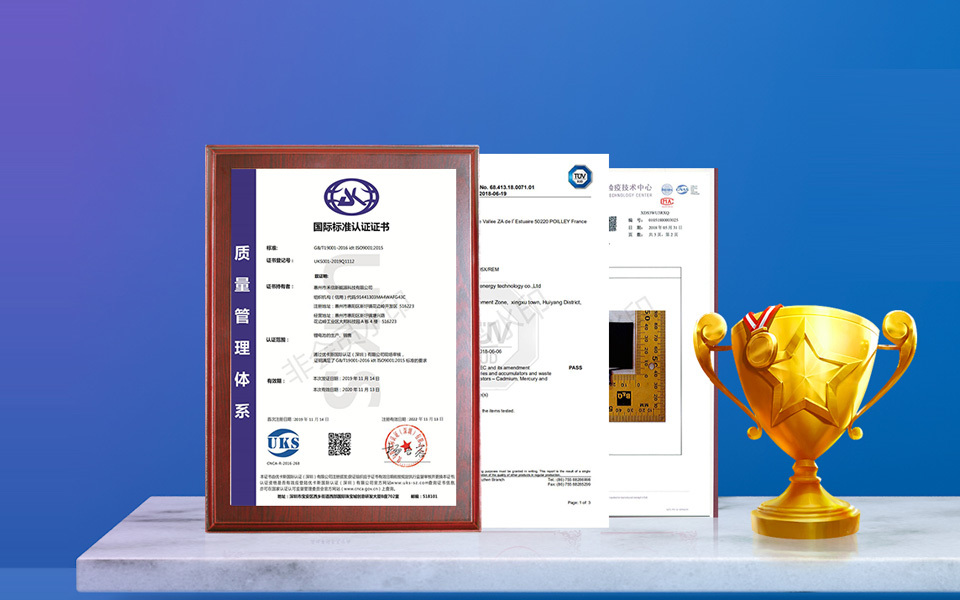11
2020
-
05
Does the battery need an activation code?
Author:
The answer is that the battery needs to be activated, but that's not what the user has to do. The author has visited a lithium-ion battery production plant. Before leaving the factory, lithium-ion batteries must go through the following processes: the lithium-ion battery case is infused with electrolyte - sealed - formed, which is constant voltage charging and then discharging. This is done for several cycles. The electrodes are fully soaked in the electrolyte and fully activated until the capacity reaches the requirement. This is the activation process - capacity division, which is to test the capacity of the battery, select batteries with different performance (capacity) for classification, classify the battery levels, and perform capacity matching, etc. .The lithium-ion battery produced in this way is already activated in the hands of the user.
The nickel-cadmium batteries and nickel-metal hydride batteries commonly used by us are also formed and activated before leaving the factory. The activation process of some batteries requires the battery to be in an open state, and then sealed after activation. This process can only be completed by the battery cell manufacturer.
There is a problem here, that is, it sometimes takes a long time for the batteries shipped from the battery factory to reach the user, ranging from one month to half a year. At this time, the battery electrode material will be passivated, so the manufacturer recommends first-time use. It is best to complete the battery charging and discharging process 3-5 times in order to eliminate the passivation of the electrode material and reach the maximum capacity.
In the three national standards for nickel-metal hydride, nickel-cadmium and lithium-ion batteries promulgated in 2001, the detection of their initial capacity is clearly stipulated. The battery can be deeply charged and discharged 5 times. When one of them meets the regulations, the test to stop. This explains the phenomenon I'm talking about very well.
Then it is also possible to call it "second activation". The "new" battery used by the user for the first time should be subjected to several deep charge and discharge cycles as much as possible.
However, according to the author's tests (for lithium-ion batteries), for lithium-ion batteries with a storage period of 1-3 months, there is almost no increase in capacity if they are subjected to deep charge and deep discharge cycles.
Previous Page
Next Page
Previous Page
Next Page
21
2020-04
21
2020-04
The lithium battery industry can still expect high growth in the next few years
21
2020-04
Decoding the pros and cons of overseas Taobao for Chinese lithium battery companies
21
2020-04
Where is the energy storage battery?
21
2020-04
More than 5 power battery companies are involved in upstream lithium mines
11
2020-05
Warmly celebrate our company's successful passing of ISO9001 quality management system certification
11
2020-05
Super battery/graphene battery is not the best yet. Take stock of 12 new battery technologies

Copyright©Huizhou Hexin New Energy Technology Co., Ltd. All Rights Reserved


